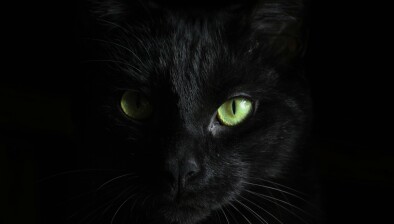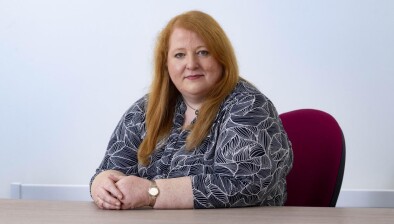Miscarriage of justice claim upheld by Court of Appeal
The Court of Appeal has upheld a miscarriage of justice finding in the case of a father who spent 16 years in prison before he was found not guilty by reason of insanity of the murder of his infant son.
Mr Justice George Birmingham, president of the three-judge court, said Yusuf Ali Abdi, 48, “should never have been convicted” and his conviction was “wrong in a fundamental aspect”.
The approval of the miscarriage of justice application had entitled Mr Abdi to seek compensation from the State.
Background
Mr Abdi was convicted of murdering his 20-month-old son Nathan Barak Andrew Ali in Co Kildare on 17 April 2001 following a trial at the Central Criminal Court in 2003.
At that trial, psychiatrists differed over whether Mr Abdi was suffering from paranoid schizophrenia when he caused his son’s death. Ten of the 12 jurors accepted the evidence of Dr Damien Mohan, the psychiatrist called by the prosecution, who said that Mr Abdi was not suffering from paranoid schizophrenia. Mr Abdi was convicted by a majority verdict.
In February 2019, the Court of Appeal heard that since his conviction, Mr Abdi’s diagnosis had changed from depression to one of paranoid schizophrenia.
The court found that the changed diagnosis amounted to new evidence that, if known by the jury in 2003, could have influenced their verdict. The appeal court therefore quashed Mr Abdi’s conviction and ordered a retrial which resulted in a verdict of not guilty by reason of insanity.
At the retrial, Dr Mohan said he was persuaded by the arguments made by a professor called by the defence and accepted that in 2003 Mr Abdi may have shown signs of mental illness. He also accepted that Mr Abdi had a history of paranoid schizophrenia.
Following the jury’s verdict, Mr Justice Alex Owens at the High Court certified that Mr Abdi’s original conviction was a miscarriage of justice.
The Director of Public Prosecutions appealed the certification, saying that the evidence relied on by the jury in the original trial was honest and given by a psychiatric expert.
Appeal
In a judgment delivered yesterday, Mr Justice Birmingham said there is no question in this case of prosecutorial irregularity or perjured evidence. The question, he said, was whether the conviction was “wrong in a fundamental aspect”.
He said the decisive factor in the retrial was that psychiatric experts called by both the defence and prosecution agreed that Mr Abdi was suffering from schizophrenia when he killed his son.
There is no doubt about that diagnosis, the judge said, and Mr Abdi “should never have been convicted”. He said the conviction for murder was therefore “wrong in a fundamental aspect” and Mr Justice Owens was correct to certify it as a miscarriage of justice.
Evidence at trial
The trial in 2019 heard that on the night of the killing, Mr Abdi’s wife and child visited his apartment. The father removed his son from his mother’s bed at around 4am and took him to the living room, where he locked the door. His wife heard a number of loud bangs and when she gained entry to the room, the child’s body was limp, his head was swollen and he had blood in his nose. She couldn’t find the child’s pulse and he was pronounced dead at 5.30am that morning.
A pathologist found that the child died from head injuries which were most likely caused from his head impacting at least three or four times against a hard surface such as a wall or floor. The jury heard that the nature and severity of the toddler’s head injuries could not have been caused accidentally such as by a fall.
During the four-day retrial, Mr Abdi’s wife Amanda Bailey said she met Mr Abdi in a nightclub on George’s Street in Dublin in May 1998 and they began a relationship that summer. She said she knew Mr Abdi was an asylum seeker and his father had been murdered in the civil war in Somalia. She said she realised in January 1999 that she was pregnant and they got married in May of that year to give Mr Abdi legal status in Ireland so he would not be deported. She was very much in love with her husband and Nathan was born on 30 August 1999, she said.
Mr Abdi was arrested in 1999 following an incident with gardaí and Ms Bailey said she felt this event caused her partner to change, bringing back the fear he had once felt in Somalia. She also believed that her husband became depressed following a visit to Africa to find his family. “Everything was negative, everything against him … he accused me of making phone calls to people saying bad things about him,” she said, adding that she had told her partner that he needed help from a doctor but he felt he did not have any mental health issues.
On the night of the killing, Ms Bailey said her husband came into the bedroom and carried the toddler out of the room. When she was in the toilet she heard some bangs but had no idea what the noise was. The witness said the living room door was locked so she used a high chair to stand up and look through the glass and saw her husband praying. “When I looked in I could see Nathan’s arm, I had no reason to believe he would have hurt him,” she added.
The witness said she then heard her partner on the phone and knew something was wrong. When she got into the room, she wrapped Nathan in a blanket and rang an ambulance as she did not think her husband’s tone on the previous call to emergency services had sounded urgent enough.
Ms Bailey said her son was pale, he had blood in his nose and his body was completely limp when she found him.
Professor Keith Rix, a consultant forensic psychiatrist called by the defence, said in his evidence that Mr Abdi was suffering from schizophrenia at the time of the offence. He said Mr Abdi was unable to appreciate that what he did at the time was morally wrong and would have been unable to refrain from committing the act.
Dr Aggrey Washington Burke, a London-based consultant psychiatrist, also called by the defence, said Mr Abdi fulfilled the criteria for a special verdict of not guilty by reason of insanity as he was unable to refrain from committing the act.
Dr Mohan said he is now in agreement with the three medical witnesses who gave evidence in this trial, who said Mr Abdi has a history of paranoid schizophrenia which dates back to November 1999.









